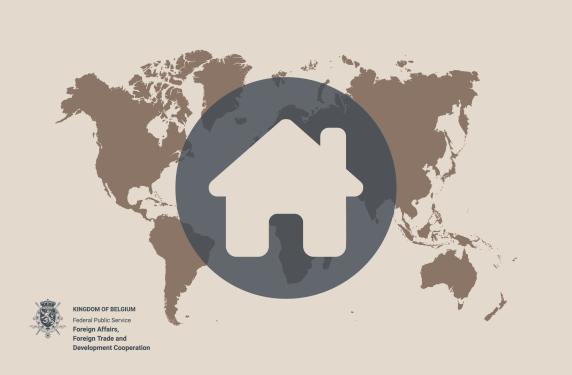-
Last updated on
Legalisation of Ugandan and South Sudanese documents
Only Ugandan and South Sudanese documents certified by the Ministry of Foreign Affairs of Uganda and/or South Sudan can be certified or legalised by the Embassy of Belgium. If a certified true copy is required, you must first contact the institution, school, organisation or company that issued the original document in order to obtain a certified copy of the original. This certified true copy then also needs to be certified by the Ministry of Foreign Affairs of Uganda and/or South Sudan.
Please book your appointment for legalisation of documents at the embassy.
Please request bank information payment slip from the reception desk before making a payments.
eLegalisation
On November 2nd 2020, the Belgian Embassy in Kampala launched the eLegalization program.
Concretely: Documents intended for Belgium will be legalized electronically, there will be no more stickers on paper documents.
Each applicant will receive an email and a receipt with the link to the legalized document. In the email and on the receipt will be mentioned a file number and a date of issue (known as the "closing date"). The electronic legalization can be viewed and downloaded via the site legalweb.diplomatie.be using the file number AND the date of issue (closing date on the receipt).
The original document and a copy of the receipt will have to be sent to the authority requesting the legalization.
A document that is official and legal in one country is not necessarily official and legal in another. Many documents must therefore be legalised if you wish to use them abroad.
The legalisation process involves checking the origin of the relevant document. Legalisation is official confirmation that the signature of the civil servant that has signed a document, or the seal or stamp on the document, is legitimate.
It is not only the signature of the person that has issued the document that is legalised, the process can also legalise the signature of the legalising registrar. Every signature, every seal and every stamp will be legalised by the person authorised to do so and who is familiar with each signature, seal or stamp. This explains why various legalisations are sometimes required, in a specific order.
Read more on the FPS Foreign Affairs website
